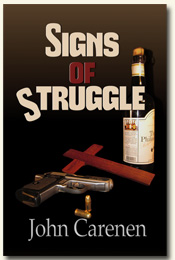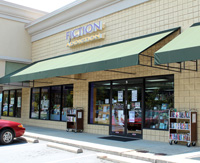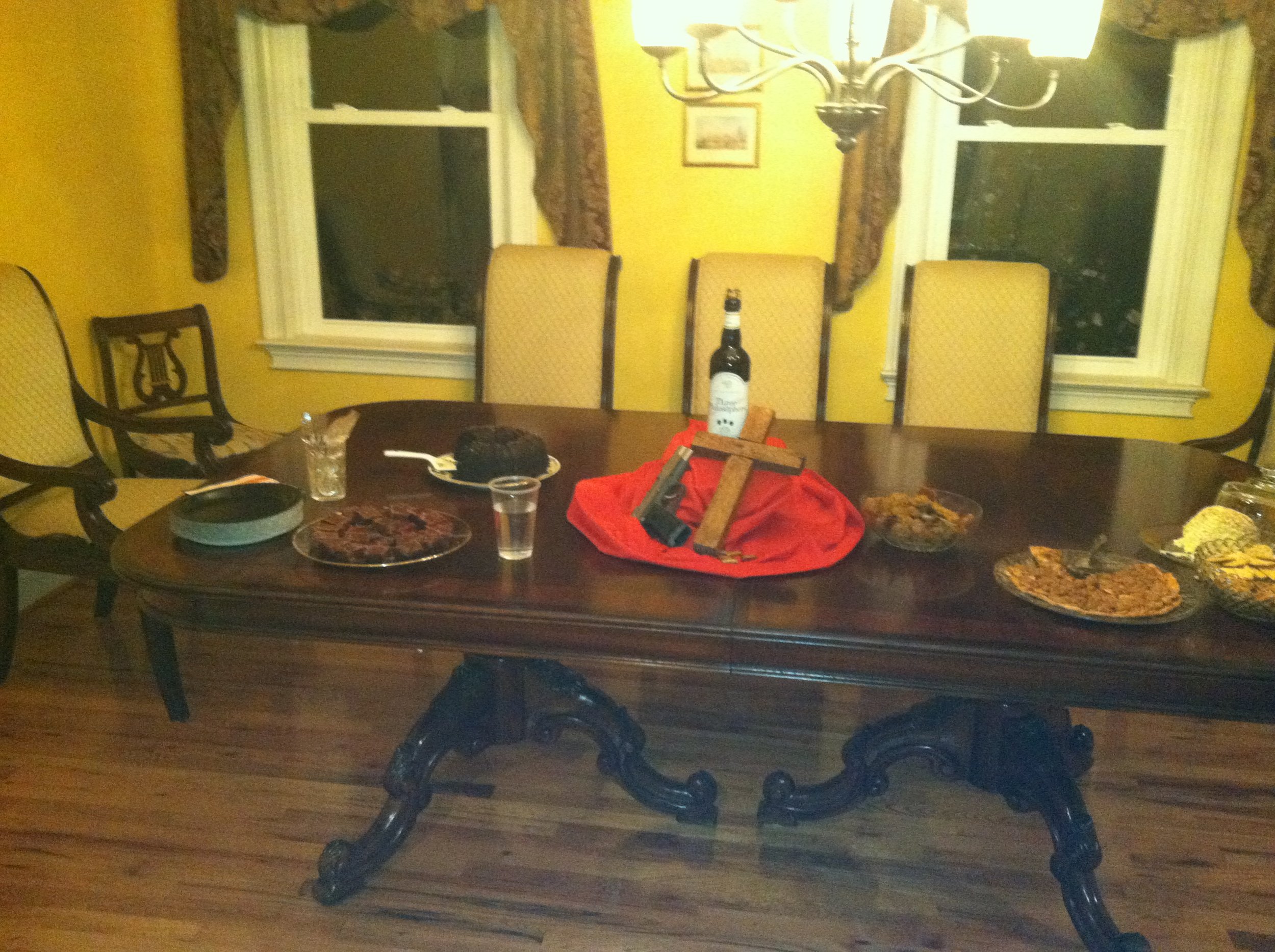Now that it's been established that the glorious Mars landing by "Curiosity" has been exposed as another NASA hoax (remember the ones about men walking on the moon?) perpetrated by some miniature robots photographed in Death Valley, we can all get back to other things. Like the Olympics, which I no longer watch. Trampoline? Ping-pong? Kickball (soccer)? I'd rather watch reruns of "What Not To Wear."
Back to reality: I promised a few pages from Chapter One from my novel, Signs of Struggle, and I hereby deliver them. Just enough to get you started. A synopsis and a bit from Chapter Two are available at the Neverland Publishing site. Publication date will be sometime next month. More on that later. For now, here's the start.
Chapter One
“No one ever told me grief felt so much like fear.”
- C. S. Lewis
All I want is peace. All I want is to be left alone with the privacy and quiet that goes with it. So I gave myself the gift of a leisurely drive in the countryside. What could be more benign?
I needed time to recover from my Georgia-to-Iowa nonstop road trip and two days of fruitless house hunting in Rockbluff. I needed cheap therapy, and a late springtime wandering in the hill country seemed like a good idea. I thought it just might work better than counseling, pharmaceuticals, or maybe even a cold six-pack.
I had left America’s Best Bulldog, Gotcha, perched on her pillow back in the Rockbluff Motel, our home the last three days, and escaped into my country cruise. That’s all I wanted – a drive in the bucolic backcountry – something I’d often enjoyed before the move to Georgia. Something good, back when I had a family. Before the troubles came. Before a lot of things. So I took off, leaving Gotcha to catch up on her beauty sleep.
The May morning was glorious as I meandered down gravel roads, weaving through dense stands of hardwoods alternating with fields of fertile farmland. Thick pigs wallowed in fresh black mud, and grazing dairy and beef cattle concentrated on generating more butterfat and bigger briskets. Living industry; blood and breath.
I drove randomly for a while, serenity at every turn. But then, on a blind curve, I met a speeding, skidding, silver Corvette that nearly ran me off the road. I couldn’t blame the driver. Hard to improve on springtime and sports cars. I glanced in my rearview mirror and saw the ‘vette disappear into its dust cloud behind me.
I continued, rounding a gentle, deep-shadowed bend, and slowed to a stop to admire a mailbox seated squarely on a brick column. I had time. The surname “SODERSTROM” was calligraphied on the side of the mailbox in the midst of flashy cardinals, burly bluejays, and pink wild roses. Good Iowa name. Not many Soderstroms in south-central Georgia.
Just then, a movement in the shadows caught my eye. I glanced up into a tunnel of shade produced by the oak-lined lane leading away from the mailbox. And there she appeared, tall, blonde, and full-breasted, emerging quickly from the shadows. A sprinting screamer, bloody and berserk.
And her face? Fear and terror, and agony of some kind. Edvard Munch should have painted her instead of the sexless being in “The Scream.” He would’ve sold more t-shirts.
My highly-cultivated selfishness took over and I paused, wondering if I could escape and avoid whatever problem was pushing that woman toward me, closer and closer. It would be so easy. I wanted to leave, free of any duty, responsibility or moral compunction to help someone else in pain. Her problem, not mine.
My decision bounced around in my mind like lottery ping-pong balls waiting to be plucked. I froze. I muttered to myself, pounded my palms on the steering wheel. I knew I was going to do that which I did not want to do.
The woman loomed twenty yards away, fifteen, closing fast. Too late for my escape. Maybe I had let the decision be made for me by deliberate dawdling, linked together with its sluggish brother, procrastination.
I slammed the shift to park; killed the engine, stepped out of my pickup truck onto the gravel, pocketed my keys, my blood pressure in my ears, beating out a regular rhythm of “dumb ass, dumb ass, dumb ass.” I looked up into the sky and silently asked, What am I doing here? No answer. Imagine.
I was reminded of the poem by A.R. Ammons, “Coward,” herein completely recalled: “Courage runs in my family.” I should have split.
The woman, lithe, long-legged, and swift, ran beautifully and with purpose, her footspeed driven by some revulsion back there, at the farm. She drew quickly to me, her bulging breasts fighting for freedom under her pale pink t-shirt. I took two steps toward her and then the woman, shrieking words I could not understand, a kind of gory glossalalia, smacked into me in an awkward embrace. I staggered back, repositioned my glasses, and simply held her, overcoming my urge, even then, to flee.
I wanted peace. Now this woman took it away, falling into my arms and covering me with blood and pulp, screaming words I finally understood: “Where are they! Where are they!”
I shuddered, even in the growing heat of the day and with the warmth of her panting body pressed against me, almost enough to make me overlook the goop now pasted on my chest and arms. The tormented expression on her face would have stopped my heart a few months ago. Not now.
I drew my head back and looked at her. The congealing bloodstuff smeared her arms, up to her elbows, and splattered on her tight t-shirt and light blue jeans. I pulled back my head a bit in distaste. I do not have the gift of mercy, unless it is directed toward myself.
She trembled through our grim embrace. I took her shoulders and pushed her to arms’ length and looked into her face to try to stop her panic, to give her a stable point of reference, her stunning green eyes wide and filled with fear, and comprehending more than I could understand. Her outstretched hands and forearms, slick with spilled life, reached out to me as she sobbed convulsively. Then she pulled me tightly to herself again and I said, “It’s okay.”
I am beyond stupid.














